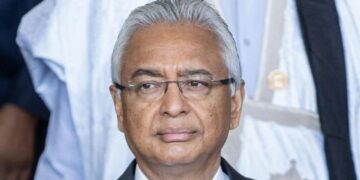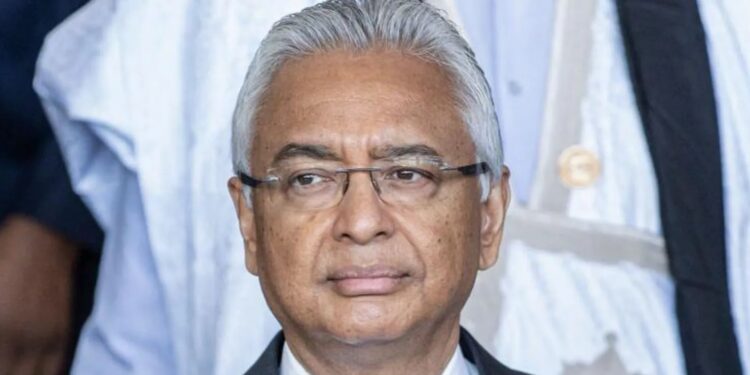By John Ikani
Mauritius’ Prime Minister has conceded that his coalition, L’Alliance Lepep, faced a “huge defeat” in Sunday’s parliamentary elections.
Prime Minister Pravind Jugnauth, aged 62, acknowledged the outcome on Monday, stating, “The population has decided to choose another team,” in remarks to the press.
Jugnauth had been pursuing a second five-year term, but his main challenger, Navin Ramgoolam, 77, leader of the Alliance of Change, appears poised to take the reins of the Indian Ocean nation.
Renowned for its stable democratic system, Mauritius saw this election marred by a scandal involving leaked phone recordings of high-profile figures, which surfaced online.
In reaction to the scandal, the government imposed a social media blackout until after the polls. However, widespread backlash led to a quick reversal of the ban within a day.
While final results are still pending, indications suggest a win for Ramgoolam’s coalition.
Ramgoolam, a former medical doctor, told reporters his alliance was “heading towards a huge victory,” though he refrained from offering specifics, emphasizing that every vote still needed to be counted.
Jugnauth expressed acceptance of the results, stating, “We must respect this choice… and we wish the country and the population good luck.”
In the capital city, Port Louis, there was a sense of optimism as people awaited official confirmation of the election results, signalling a shift in the nation’s political landscape.
Celebrations erupted in the streets, with crowds dancing, singing, waving national flags, and setting off firecrackers, accompanied by the sound of vuvuzelas.
One voter, Ibrahim, shared with the BBC that dissatisfaction with the status quo drove many to back the Alliance for Change, underscoring frustrations over the cost of living, governance, and corruption.
Throughout their campaigns, both leading parties pledged to uplift the lives of Mauritians with various reforms.
Ramgoolam, whose father was a key figure in the country’s fight for independence, and who has previously held the prime ministerial post twice, promised increased pensions, free public transport and internet, and lower fuel prices.
Arvin Boolell, an opposition coalition member and former foreign minister, described the election as a “victory of the people” during an interview with the BBC Newsday programme.
The electoral commission reported a high voter turnout, with around 80% of eligible citizens casting their ballots.
Voters elected representatives for 62 parliamentary seats, which will govern for the next five years. In additionally, up to eight “best loser” seats are allocated to ensure balanced ethnic representation in the legislature.
This election follows a landmark deal in which the UK transferred sovereignty over the Chagos Islands to Mauritius.




































